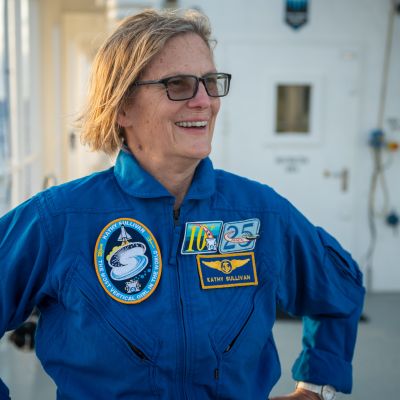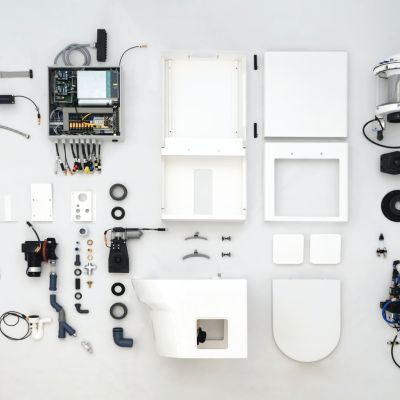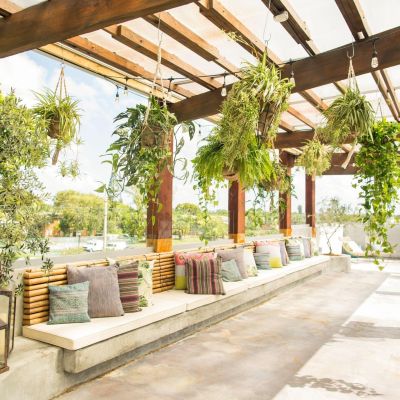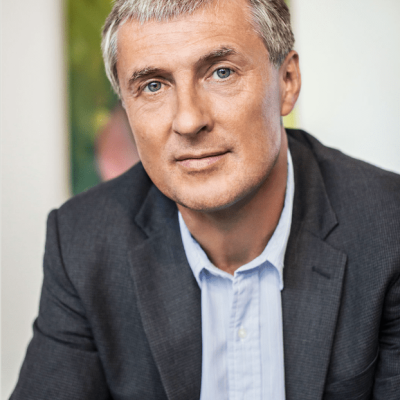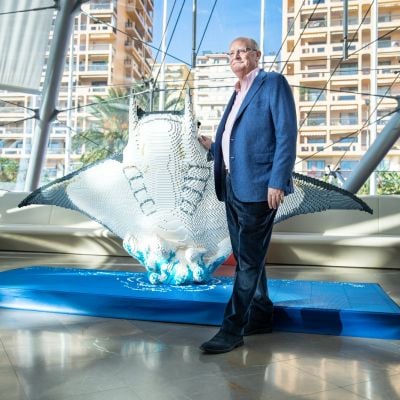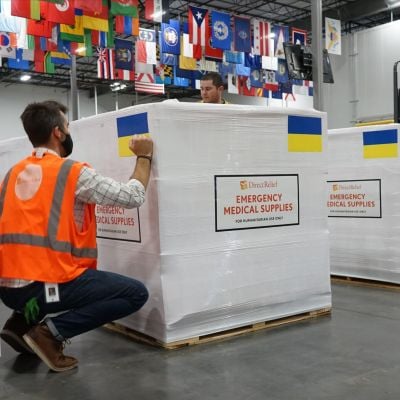The Sustainable Beauty of Bawah Island
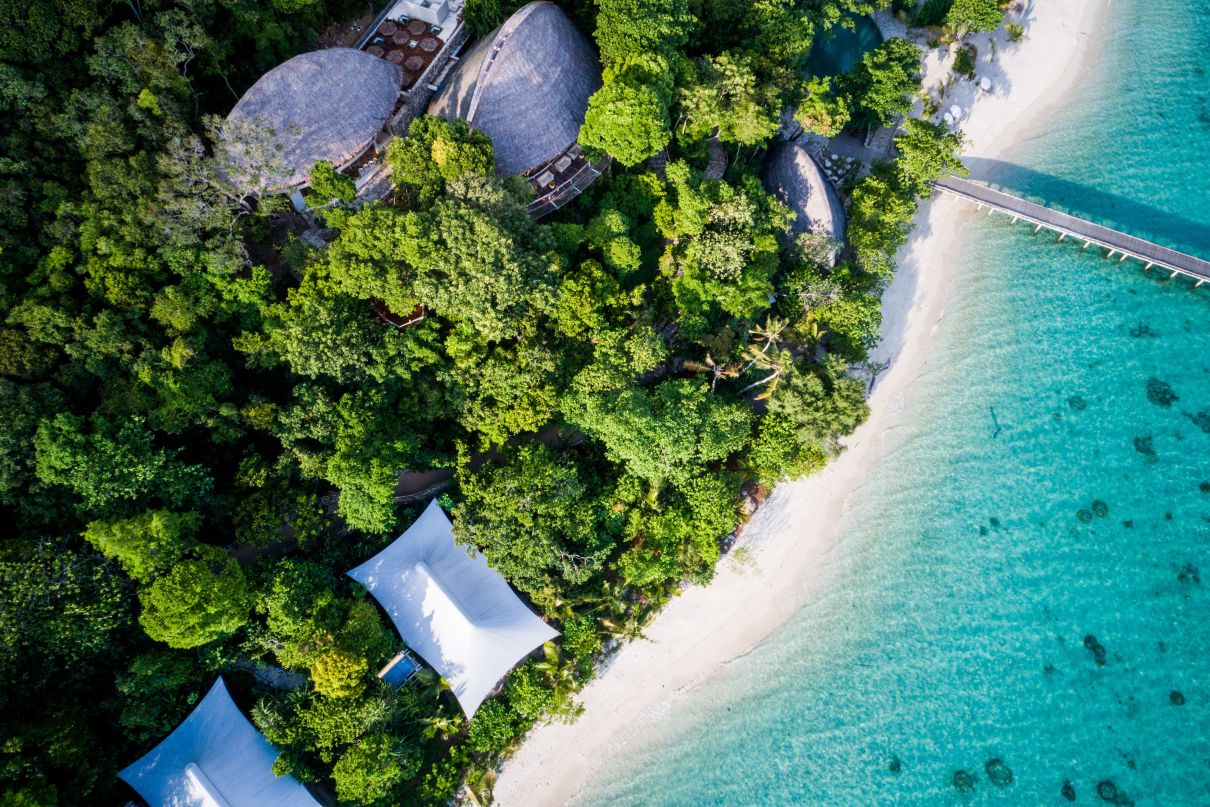
Bawah Island is raising the environmentally friendly bar for Indonesia.
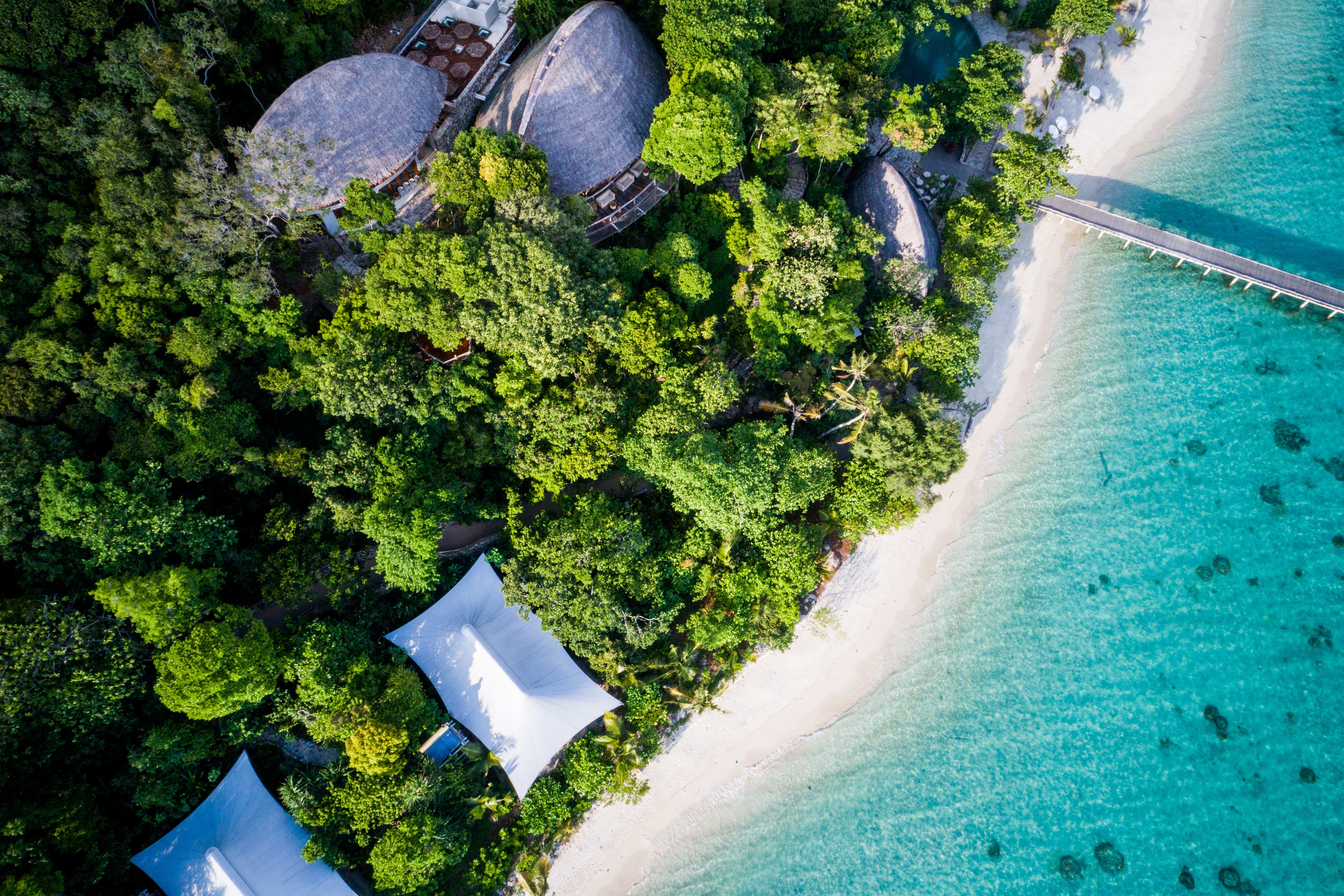
“In terms of logistics, we might as well have been trying to build in Antarctica,” Tom Blachere, general manager of the newly opened Bawah Island, told me over dinner. Hidden like lost treasure amid a chain of jewel-like isles in Indonesia’s little-known Riau archipelago, almost every inch of this hand-crafted sustainability-focused private-island retreat arrived via a lengthy sea journey, before being lugged ashore, assembled, fashioned and formed.
“It’s taken us five years to build Bawah and we’ve done it with an all-Indonesian construction team, with many of the workers coming from neighbouring islands.” Today, 45 percent of Bawah’s manpower still sail into work from the surrounding area.
And that’s just one of the ways in which Bawah has been raising the environmentally friendly bar. Spread over 300 acres, five coconut-coated islands and three impossibly blue lagoons in one of Indonesia’s newest marine-conservation zones, preserving the area’s unique habitat was a priority for the owners from the get-go.
The architect was Singaporean Sim Boon Yang, known for his progressive approach to design; the look is natural-luxe, with three restaurants and bars; a cathedral-like bamboo spa; 35 oceanside villas; and an aqua-airstrip for a private eight-seater seaplane. No heavy machinery was permitted during the construction process, with stone being broken by hand and many of the building materials — bamboo, naturally fallen woods and oversized palm leaves — floated in from local islands.
The 35 villas make sustainability seductive; beach villas with breezy bamboo lattice walls, recycled teak floors and lofty tented roofs, softened with blousy canopied beds, flashes of sea-green batik and shimmering rice-shell chandeliers; while the eight over-water villas have screens that peel back straight into the lagoon. Guests can soak in copper tubs crafted by Javanese artisans, filled with filtered rainwater, using organic biodegradable toiletries, knowing that when they pull the plug the water will be strained and sieved though a biological pond and used to irrigate the gardens.

These are the gardens that Bawah’s landscaper and permaculture specialist Jonathon Simo tends with the intensity of Matt Damon growing space crops in The Martian. So far, he has established a seed bank and nursery to document, preserve and nurture the oldest and rarest plants and trees in Indonesia. This included a rare species of palm found on Bawah, which can grow for an astonishing 2,000 years. This, however, is a mere side-line to the 10,000 square feet of fruit, vegetable and herb gardens that have been expertly sown, grown and maximised through plant companionship, crop rotation and soil building.
There are cucumbers; spring beans and zucchini sprouting from the kitchen rooftop; sweet-potato towers piled under mango trees; hydroponic lettuce rails; and mini fields of corn, tomatoes, onions, garlic, chili, lemongrass, pineapple and curry leaf; never mind the wild gardens, where you’ll find papaya, wild figs, persimmon, pandan, ginger and galangal. No pesticides are used (of course); in a balanced eco-system, pest numbers are kept under control by flowers and natural predators. It’s going to take some time but eventually the gardens will provide a big enough bounty to feed all 70 guests. These techniques are also being filtered into the local community by training small groups of farmers to grow food in a sustainable manner and provide them with future economic opportunities.
It’s just one of the do-gooding community programmes that Bawah was able to boast about at the 2016 Asia Clean Energy Summit, where it also announced a partnership with Renewal Energy Integration Demonstrator, which aims to bring renewable energy ‘micro-grids’ to tens of thousands of Southeast Asian islands currently without power.
“Sustainability is not only important to us but for the future of humankind. What an island such as Bawah offered was the chance to design a world from scratch,” says Blachere. He adds: “We aim to inspire.”
This article originally appeared in Billionaire's Water Issue, June 2018. To subscribe contact


